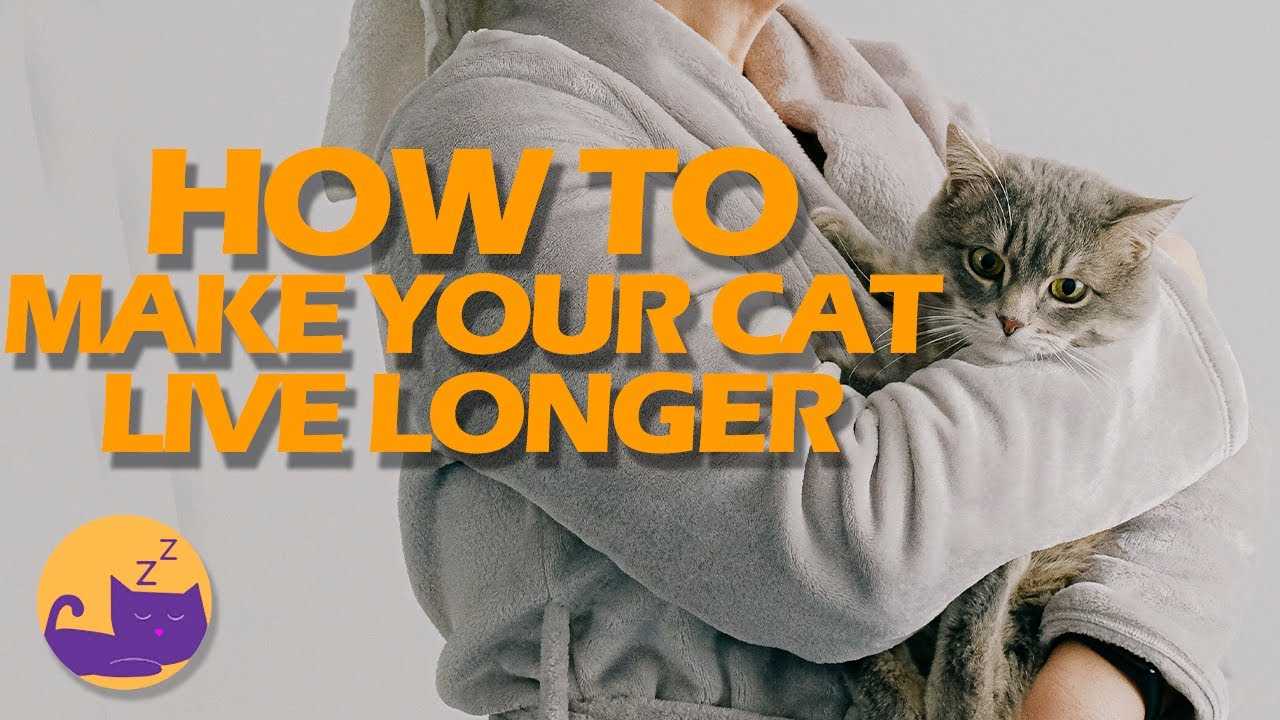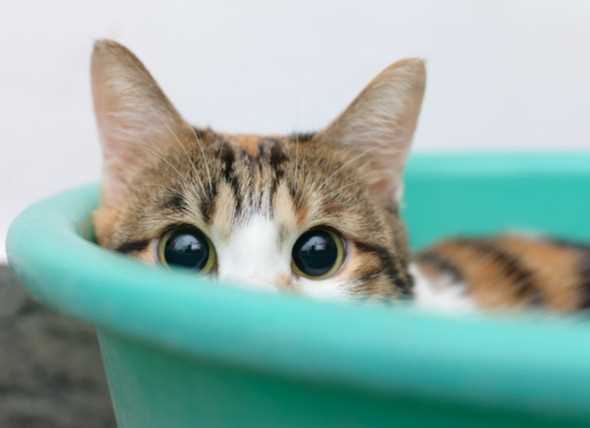



Regular veterinary check-ups are non-negotiable. Annual visits help detect potential health issues early, ensuring a longer, healthier existence. Vaccinations, dental care, and routine screenings are crucial components of these check-ups.
Nutrition deserves serious attention. A balanced diet, tailored to specific needs, plays a pivotal role. High-quality cat food, rich in protein and low in fillers, supports overall well-being. Hydration is equally important; fresh water should always be available to maintain proper kidney function.
Engagement in physical activities helps maintain a healthy weight. Interactive toys, climbing structures, and designated playtime contribute to physical fitness. Regular exercise reduces the risk of obesity-related ailments, directly impacting lifespan.
Mental stimulation is equally vital. Puzzle feeders, new toys, and environmental enrichment prevent boredom and promote cognitive health. A stimulated mind can lead to a happier, more active life.
Stress management is often overlooked. A calm environment, safe spaces, and consistent routines can significantly reduce anxiety. Happy felines tend to thrive and enjoy a more extended period with their humans.
Finally, love and companionship cannot be underestimated. Regular affection and social interaction foster emotional well-being. A strong bond with caregivers enhances happiness and overall quality of life.
Ways to Enhance Feline Longevity

Regular veterinary check-ups play a pivotal role. Annual examinations detect health issues early. Vaccinations and parasite control keep threats at bay.
Quality Nutrition
A balanced diet tailored to age and health needs is key. Look for high-quality protein sources and avoid fillers. Consult with a vet for specific dietary requirements.
| Food Type | Benefits |
|---|---|
| Wet Food | Hydration and weight management |
| High-Protein Kibble | Muscle maintenance and energy |
| Supplements | Joint health and coat condition |
Physical Activity

Engaging in daily playtime boosts physical health. Interactive toys and climbing structures stimulate both body and mind. Set aside time for chasing, pouncing, and exploring.
Providing a Balanced Diet for Your Feline Companion
Prioritize high-quality protein sources like chicken, turkey, or fish. These ingredients help maintain muscle mass and overall health. Avoid low-grade fillers such as corn and soy; they provide minimal nutritional value.
Incorporate wet food into daily meals. Moisture content aids hydration and supports urinary tract health. Consider a mix of dry and wet options for variety and texture.
Include essential fatty acids, like omega-3 and omega-6, found in fish oil or flaxseed oil. These contribute to a shiny coat and healthy skin.
Monitor portion sizes based on age, weight, and activity level. Overfeeding can lead to obesity, while underfeeding may result in nutritional deficiencies. Consult with a veterinarian for personalized feeding guidelines.
Provide fresh water at all times. Hydration is crucial for digestion and overall well-being. Consider a water fountain to encourage drinking.
Introduce new foods gradually to avoid digestive upset. Mixing small amounts of new food with the current diet can ease this transition.
Pay attention to any food allergies or sensitivities. Recognizing adverse reactions is vital for maintaining comfort and health.
Lastly, always choose cat-specific diets that meet the nutritional needs of felines. Commercial foods tailored for various life stages ensure balanced nutrition at every age.
Regular Veterinary Check-Ups and Vaccinations
Annual visits to the vet are non-negotiable. During these check-ups, my human ensures I receive a thorough examination, which helps catch any health issues early. Regular wellness exams can identify conditions like dental disease, obesity, or heart problems before they become serious. It’s like a routine tune-up for my body!
Vaccinations are another critical aspect. Staying updated on shots protects against various infectious diseases. Core vaccines, such as those for feline panleukopenia, calicivirus, and rhinotracheitis, should be administered on schedule. My human keeps track of these dates to avoid any lapses. Additionally, discussing lifestyle with the vet can lead to recommendations for non-core vaccines, based on my habits and environment.
Parasite prevention is part of these visits too. Regular testing for fleas, ticks, and worms is vital. My human uses preventive treatments, which are much easier than dealing with infestations later. Maintaining a parasite-free environment promotes not only my health but also the well-being of my human.
My human has learned to ask questions during these appointments. Understanding my health status means more informed decisions about my diet and lifestyle. Trusting the vet to provide tailored advice ensures I stay happy and healthy for as long as possible.
Creating a Safe and Enriching Environment
Set up a space where I can explore without hazards. Secure all cords, toxic plants, and small objects that could be swallowed. A clutter-free area is essential for my safety and comfort.
Interactive Spaces
Incorporate scratching posts, climbing shelves, and hideaways. These features stimulate my natural instincts to climb, scratch, and explore. Rotate toys regularly to maintain my interest and encourage playtime.
Outdoor Adventures
If I venture outside, ensure a secure enclosure or use a harness and leash. Supervised outdoor time allows me to experience fresh air while staying safe. Regularly clean my environment with tools like the best portable cordless pressure washer with water tank to maintain a hygienic space.
Importance of Exercise and Playtime
Daily physical activity is non-negotiable for maintaining health and agility. Engaging in interactive play keeps muscles toned and weight in check.
Types of Activities
- Chasing feather toys mimics hunting instincts.
- Laser pointers encourage quick sprints and agility.
- Interactive puzzle feeders stimulate both mind and body.
- Climbing structures provide vertical space for exploration.
Setting a Routine
Consistent playtime is crucial. Aim for at least 15-30 minutes of active engagement each day. This not only combats boredom but also strengthens the bond between pet and caregiver.
Consider investing in a best pet door for cats to encourage outdoor exploration and exercise. Fresh air and new sights can significantly enhance mood and vitality.
Recognizing Signs of Illness Early
Pay close attention to changes in behavior or physical condition. Early detection can significantly impact health outcomes. Here are some specific indicators to monitor:
- Changes in Appetite: A sudden increase or decrease in food intake might indicate an underlying issue.
- Weight Fluctuations: Rapid weight loss or gain can signal health problems. Weigh regularly to track trends.
- Grooming Habits: Excessive grooming or neglecting grooming can suggest stress, pain, or illness.
- Lethargy: A shift from playful and active to sluggish behavior warrants immediate attention.
- Vocalization Changes: New or unusual sounds might indicate discomfort or distress.
- Litter Box Issues: Straining, blood in urine, or changes in stool consistency can indicate urinary or gastrointestinal issues.
- Changes in Social Interaction: Withdrawal from family members or increased hiding behavior may be signs of discomfort.
Regular monitoring of these signs can lead to timely veterinary visits, improving overall health management. If anything seems off, don’t hesitate to consult a veterinarian.
Managing Stress and Anxiety in Felines
Creating a calm atmosphere is crucial. Use pheromone diffusers to mimic natural calming scents. These products help ease tension and promote relaxation.
Provide safe spaces. A cozy bed or a secluded area can be a retreat when feelings of anxiety arise. High perches can also offer a sense of security, allowing me to observe my surroundings from a distance.
Routine matters. Keeping a consistent schedule for feeding, playtime, and grooming reduces uncertainty. Predictability helps me feel secure and less anxious.
Interactive play is beneficial. Engaging toys stimulate my mind and body, releasing pent-up energy and stress. Regular playtime strengthens the bond and provides an outlet for natural instincts.
Gentle handling is important. Avoid sudden movements or loud noises that can startle me. Patience during grooming or vet visits goes a long way in minimizing stress.
Social interactions should be monitored. While some enjoy company, others prefer solitude. Respecting boundaries helps maintain a peaceful environment.
Consulting with a vet about behavioral concerns is advisable. Professional advice can lead to effective strategies tailored to individual needs.









